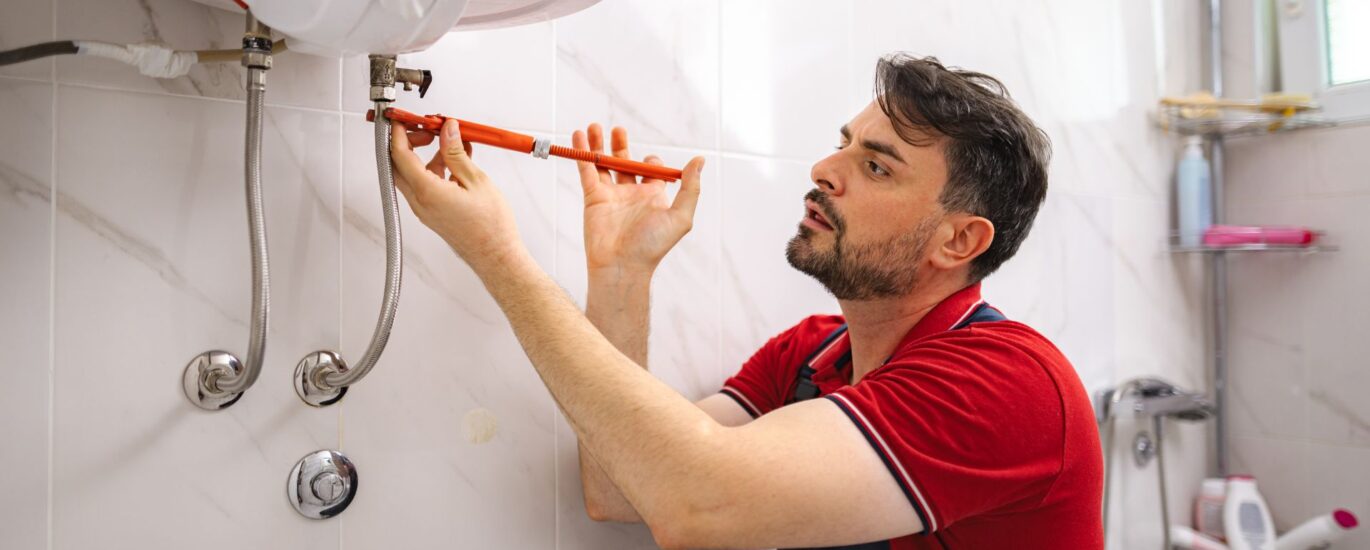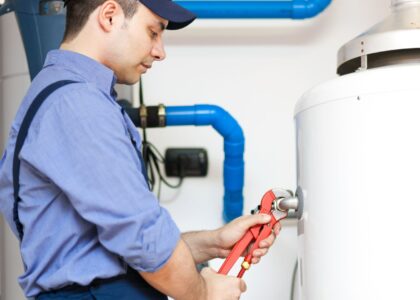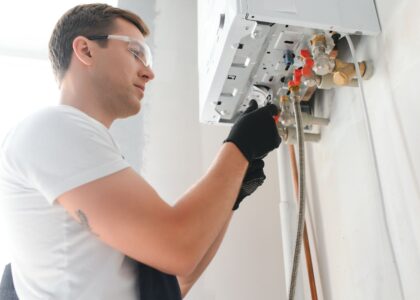Introduction
Few things disrupt daily life quite like a water heater that stops working. Whether it’s a cold shower, sporadic heating, or strange noises, issues with your water heater demand attention. In this article, we’ll walk through the most common causes of water heater breakdowns, key warning signs, and what you should do next—including when to call for Water Heater Repair professionals.
Common Causes of Water Heater Failure
Knowing what tends to go wrong helps you diagnose problems (or at least understand what the technician might tell you). Some of the top causes include:
- Sediment buildup — Over time, minerals and debris settle at the bottom of tank-type heaters. That reduces efficiency and places stress on heating elements.
- Bad heating element / burnt-out coil — In electric units, one or both elements may fail entirely.
- Faulty thermostat — The control that tells the heater when to heat could malfunction.
- Corrosion or rust — Internal tank corrosion weakens components or the whole tank.
- Pressure relief valve issues — If the safety valve fails, it can leak or cause pressure problems.
- Pilot light or ignition problems (gas units) — The burner may refuse to light.
- Leaks from plumbing connections — Loose or damaged pipes, fittings, or seals can let water escape.
7 Warning Signs You Need Water Heater Repair
If you see any of these signs, don’t ignore them:
- No hot water
- You turn on a hot tap and get nothing but cold water.
- In gas units, you may find the pilot light went out.
- Insufficient hot water
- Hot water runs out too quickly.
- Tank size might be too small, or heating components are failing.
- Strange noises (rumbling, popping, hissing)
- These are often caused by sediment being heated and shifting.
- Over time it can damage internal parts.
- Water pooling or leaking
- Water around the base or drainage pan means something isn’t sealed right.
- Leaks inside the tank are especially serious.
- Smelly or discolored water
- “Rotten egg” odor often signals bacterial growth.
- Rusty or brown water suggests the tank or anode rod is degrading.
- Temperature fluctuations
- Water temp jumps from scalding to barely warm.
- The thermostat or element may be acting up.
- Pilot light keeps going out (gas heaters)
- The thermocouple or gas valve may be faulty.
If you’re seeing one or more of these, it’s time to consider professional Water Heater Repair.
What Happens When You Call for Professional Repair
When you call for Water Heater Repair, a technician will typically follow this process:
- Safety shutdown
- Turn off power or gas supply before beginning any checks.
- Prevents mishaps while working.
- Detailed inspection & diagnosis
- The tech checks wiring, connections, pipes, valves, heating elements, tank condition, etc.
- In gas heaters, the pilot, burner, venting, and gas system are examined.
- Explain the findings
- You get a clear, understandable breakdown of what’s wrong.
- The tech may show you damaged parts or explain failure causes.
- Repair or restore
- Replace failed parts (elements, thermostat, valves).
- Tighten or reseal plumbing joints.
- Flush tank or clean components to remove sediment.
- Testing & verification
- Turn the system back on and monitor temperature, pressure, leaks, and functionality.
- Clean-up & advice
- The technician cleans up the work area.
- They’ll often share preventative tips to help you avoid repeat issues.
This structured process ensures your unit is restored properly.
How to Choose a Reliable Water Heater Repair Service
When looking for a professional, you should look for:
- Clear communication and willingness to explain the problem
- Prompt response times
- Skilled technicians familiar with both electric and gas systems
- Good local reviews and reputation
- Ability to service or repair your specific model
If you’re in Long Beach or surrounding areas, you can refer to the Water Heater Repair page from our site: https://speedyplumberslongbeachca.com/water-heater-repair/
To schedule service, you can go here: https://speedyplumberslongbeachca.com/contact-us/
Tips to Extend the Life of Your Water Heater
Taking preventive action can save you trouble (and money). Try these:
- Annual flushing to remove accumulated sediment
- Testing the pressure relief valve once a year
- Checking for leaks periodically
- Maintaining the right water temperature setting (often ~120 °F)
- Insulating water lines and the heater (if practical)
- Replacing the anode rod every few years, before severe corrosion sets in
Doing these regularly helps delay the need for major repairs.
When a Repair Might Not Be Enough
There are some cases where repair isn’t feasible or cost-effective:
- The tank is severely corroded or cracked
- Multiple major components have failed
- The unit is very old (beyond its expected lifespan)
- Efficiency is extremely low, and energy bills are high
In those situations, replacement might make more sense. Even so, repair is often a good first choice when issues are still minor.
Conclusion
Water heater problems often start small but can cascade into serious headaches if ignored. Recognizing signs early—such as leaks, weird noises, or insufficient hot water—can help you call for Water Heater Repair before your entire system fails. Once you make that call, the right service will diagnose carefully, repair safely, and restore your hot water reliably.
If you’d like to arrange service, visit our repair page at https://speedyplumberslongbeachca.com/water-heater-repair/ or drop us a line through https://speedyplumberslongbeachca.com/contact-us/.
Stay proactive, and you’ll enjoy a longer, smoother life from your water heater.





